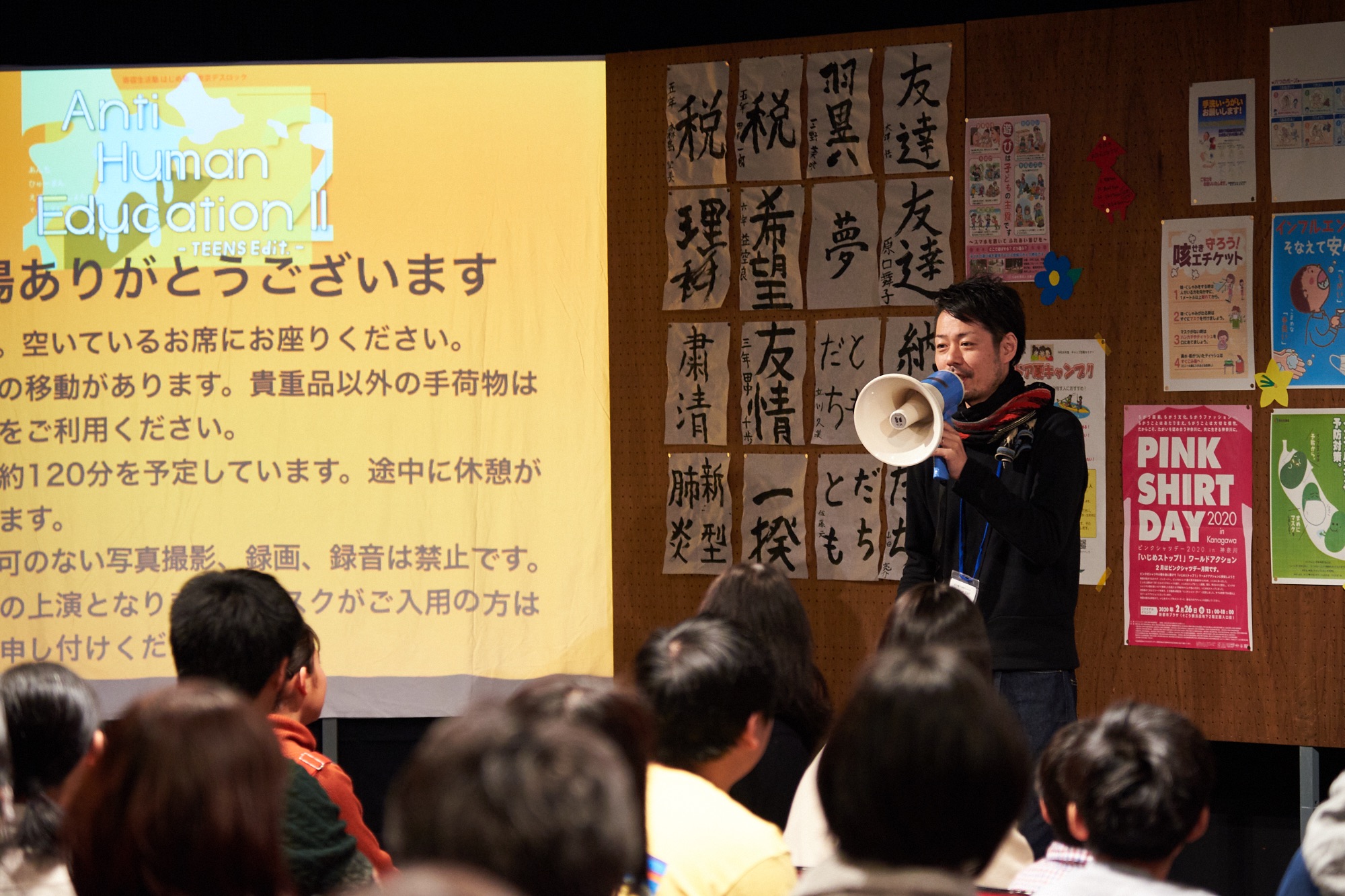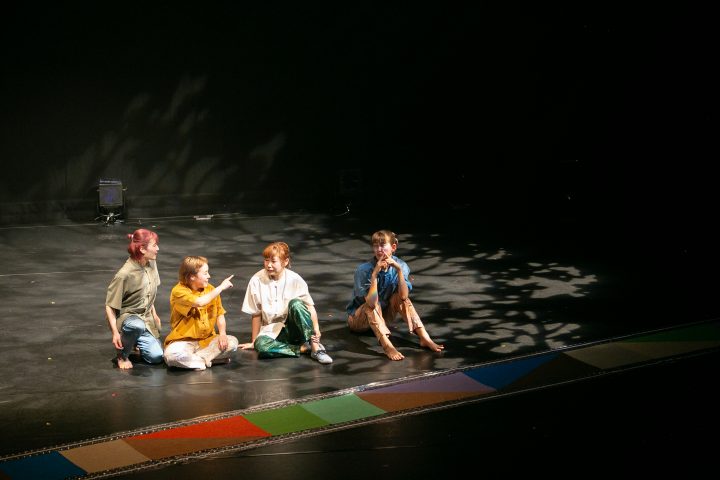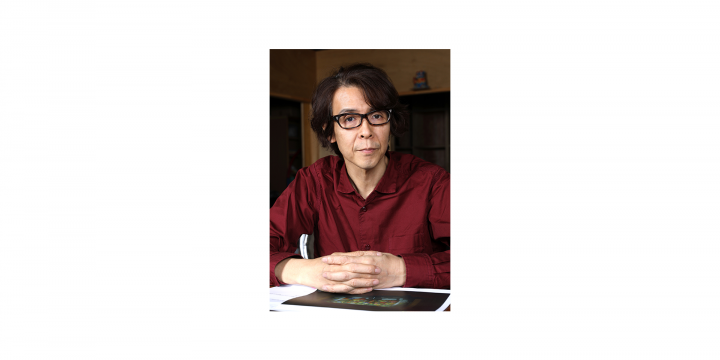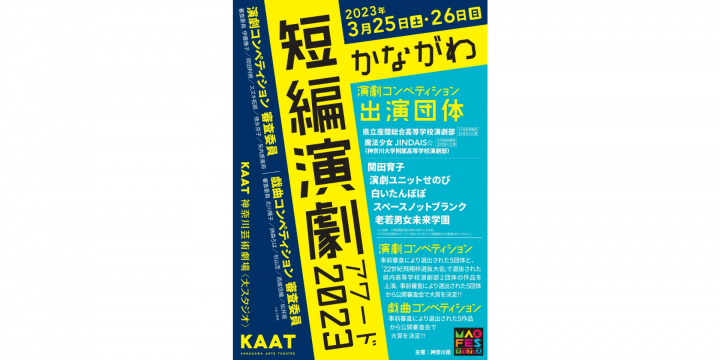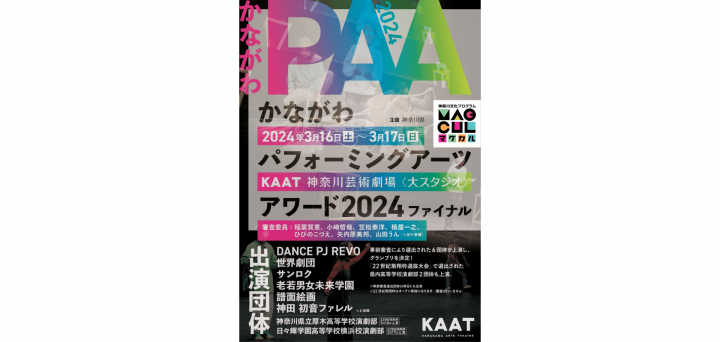Hajime Juku Boarding School x Tokyo Deathlock = A theatrical experience learning from children!
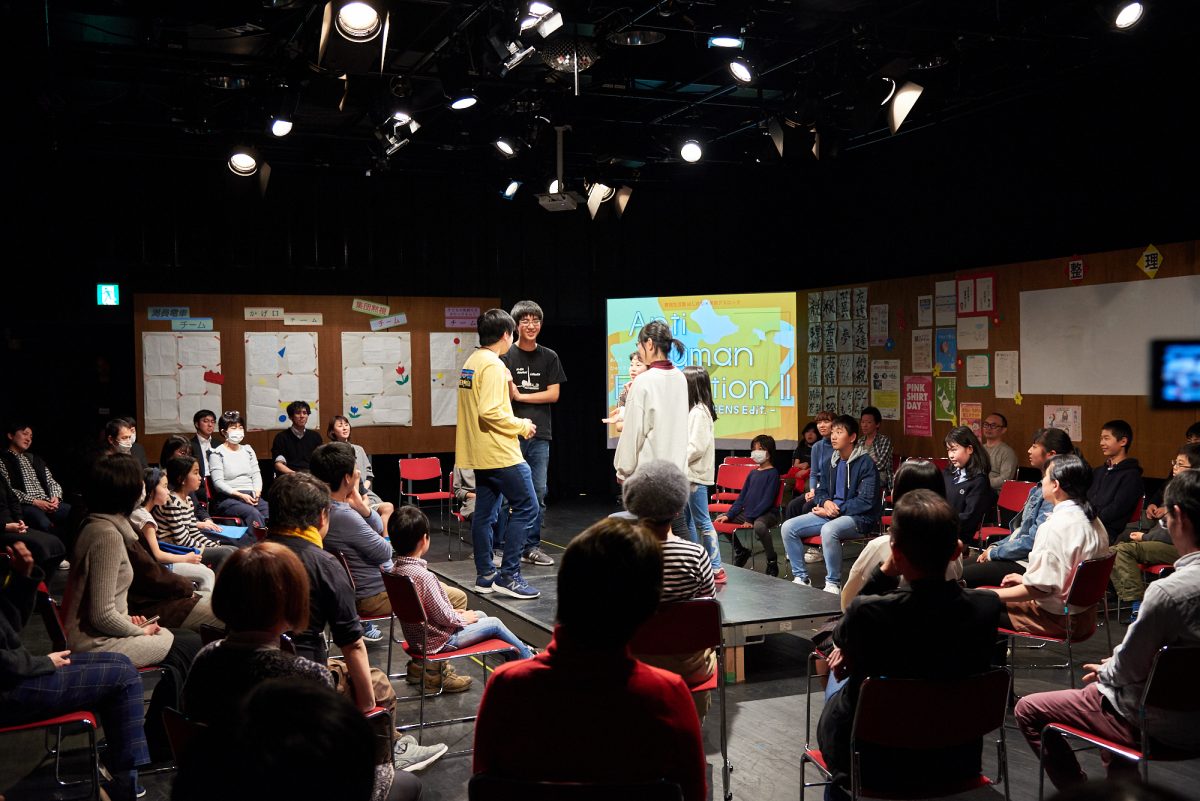
Anti Human Education II, a collaboration between Hajime Juku, a boarding school, and Tokyo Deathlock, was planned as one of the works participating in MagFes 20. In response to a call from director Junnosuke Tada (head of Tokyo Deathlock) to "create a play," teenagers from a free school have been working on a workshop for about two months since December last year.
Due to concerns about the spread of COVID-19, the performance itself was canceled, and a recital was held without an audience (only those involved participated) at Studio HIKARI, Kanagawa Prefectural Youth Center, on Friday, February 28th. However, as an outreach activity (a traveling service by artists), we believe that the significance lies in the efforts leading up to the actual performance, so in this article we will report on the journey leading up to the recital.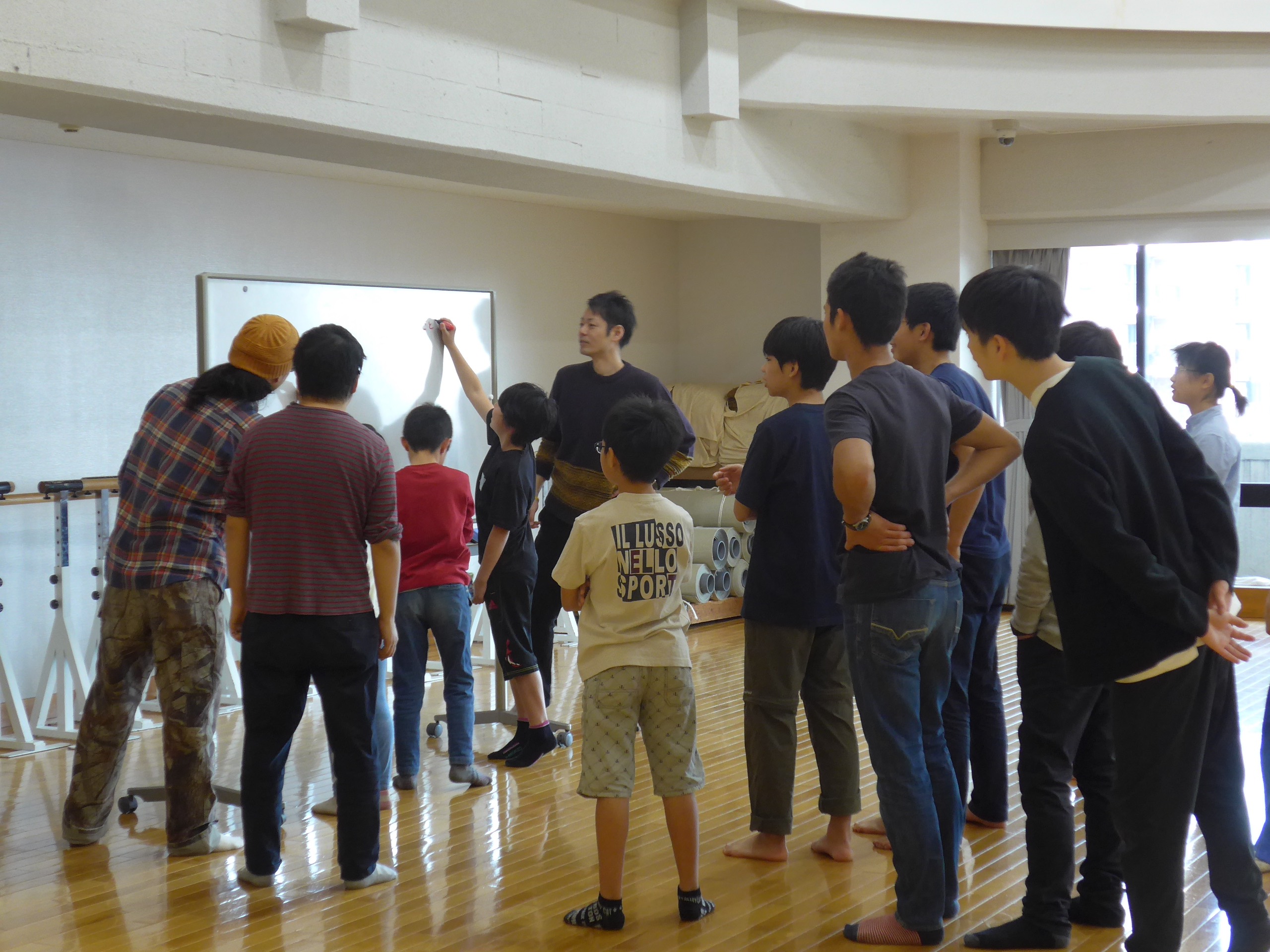
Tada has been working with the children at Hajime Juku for about three years. Until now, they only held workshops once a year, but this time they decided to recruit participants again with the aim of creating a theatrical production.
Rehearsals began on December 26th of last year. Since then, they have met about once a week, mainly on weekends, to hold workshops such as word games.
"The fun of theater is creating through repeated trial and error, and sometimes it's interesting to not finish something. Rather than me teaching them something, I think about it together with them, and then I say, 'This is interesting, so let's give it a try,'" says Tada.
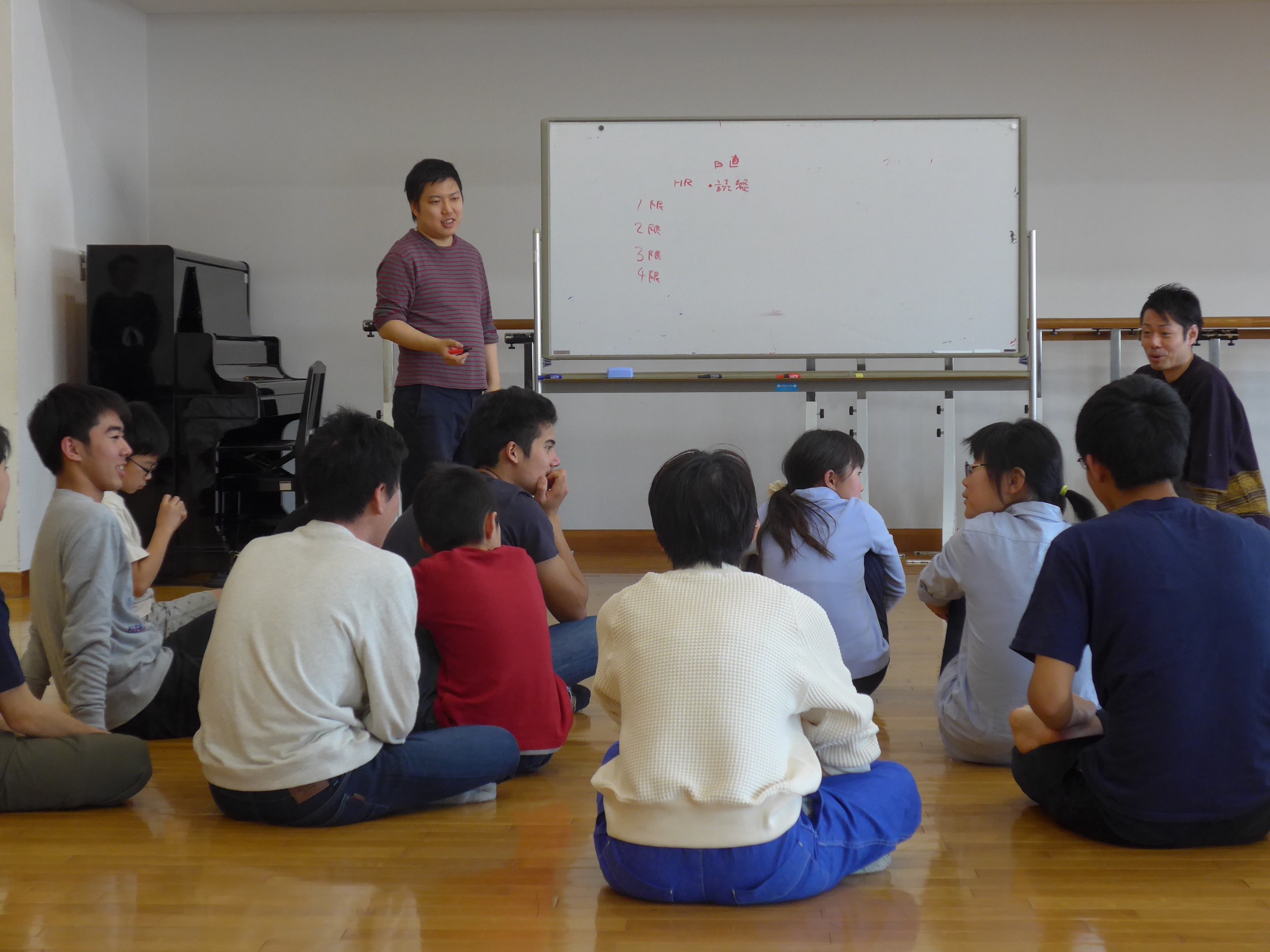
At the workshop held in early February, discussions on the framework for the "play" had already begun. It seemed that the theme was related to school lessons. First, each participant listed things that came to mind, such as "morning scenery," "things they hated being forced to experience," and "things they wanted to try." Everyone was curious to see what kind of "play" they would create...
"If necessary, I might create some text, but I don't create new words and have them memorize them. The audience's reaction will be different depending on the performance, so in that sense, even I don't know what will happen in the actual performance (laughs)," says Tada.
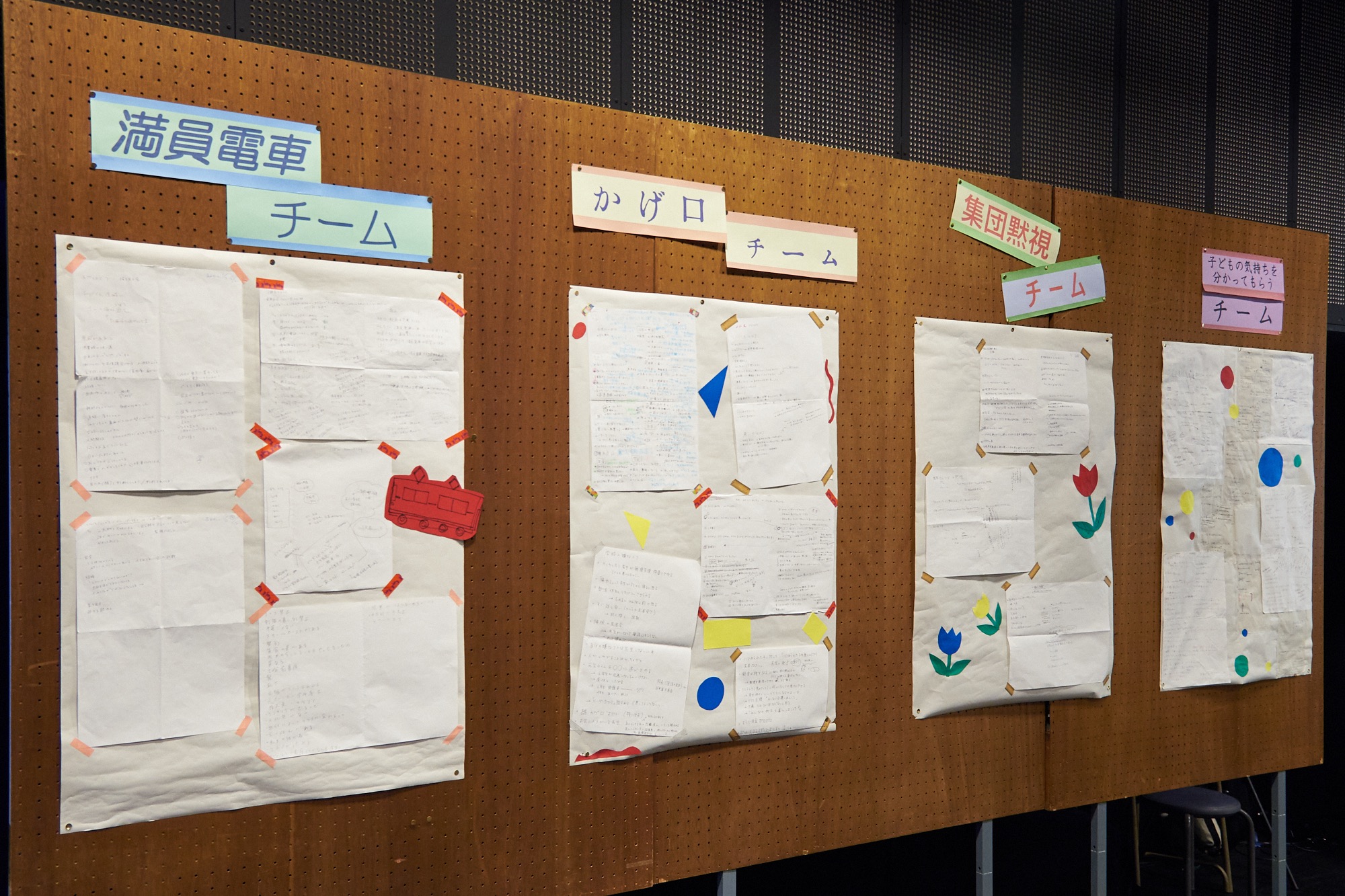
The results presentation took place on Friday, February 28th. On the wall of HIKARI, the contents of the discussions that had taken place in the four teams were posted.
There was the team that tried to understand the children's feelings, the group silent stare team, the shadow team, and the crowded train team. I had no idea what the conversation would be like, but the bell rang to signal the start of "lesson," so I took my seat.
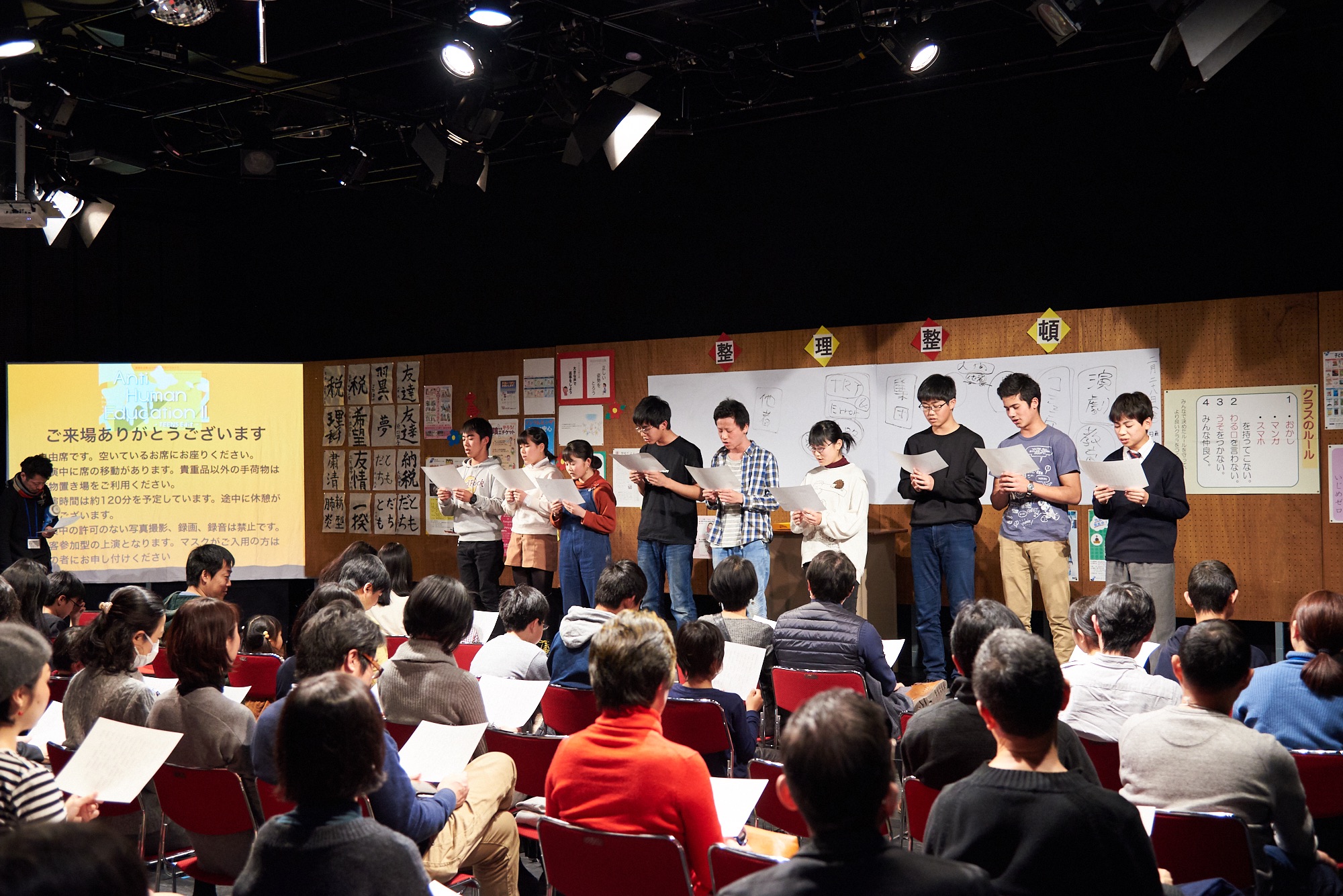
The morning session before the class began, following the custom of the school, began with a sutra reading. Handouts were distributed to the audience, and everyone enthusiastically chanted the Heart Sutra.
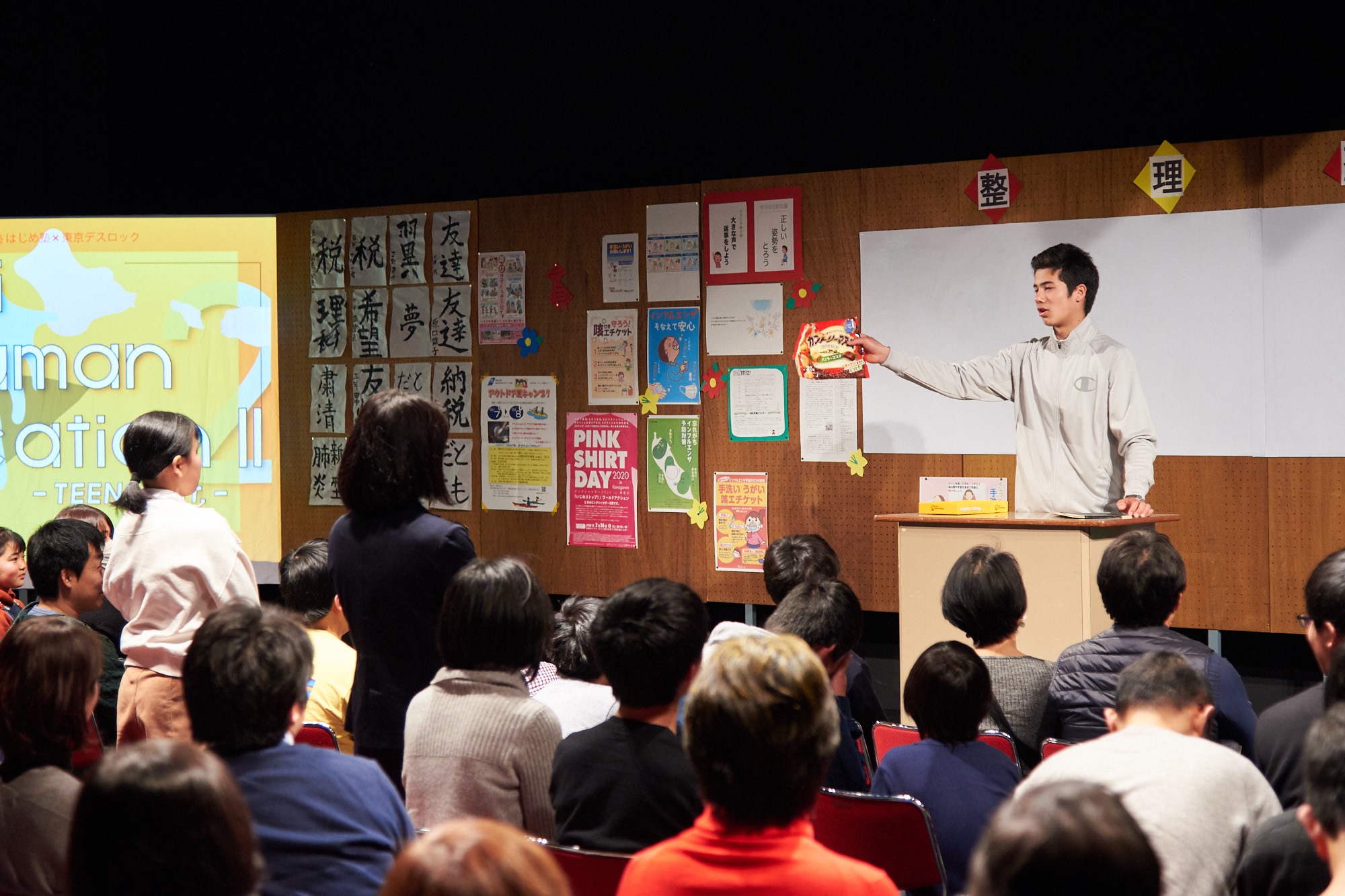
The first lesson is about "understanding children's feelings."
While I smile wryly at the teacher standing on the podium (stage) forcing the "adult logic" on the students in the classroom (audience), it also makes me feel sad. It made me reflect on my own experience, realizing that children view the unreasonable words and actions of adults with a critical eye.
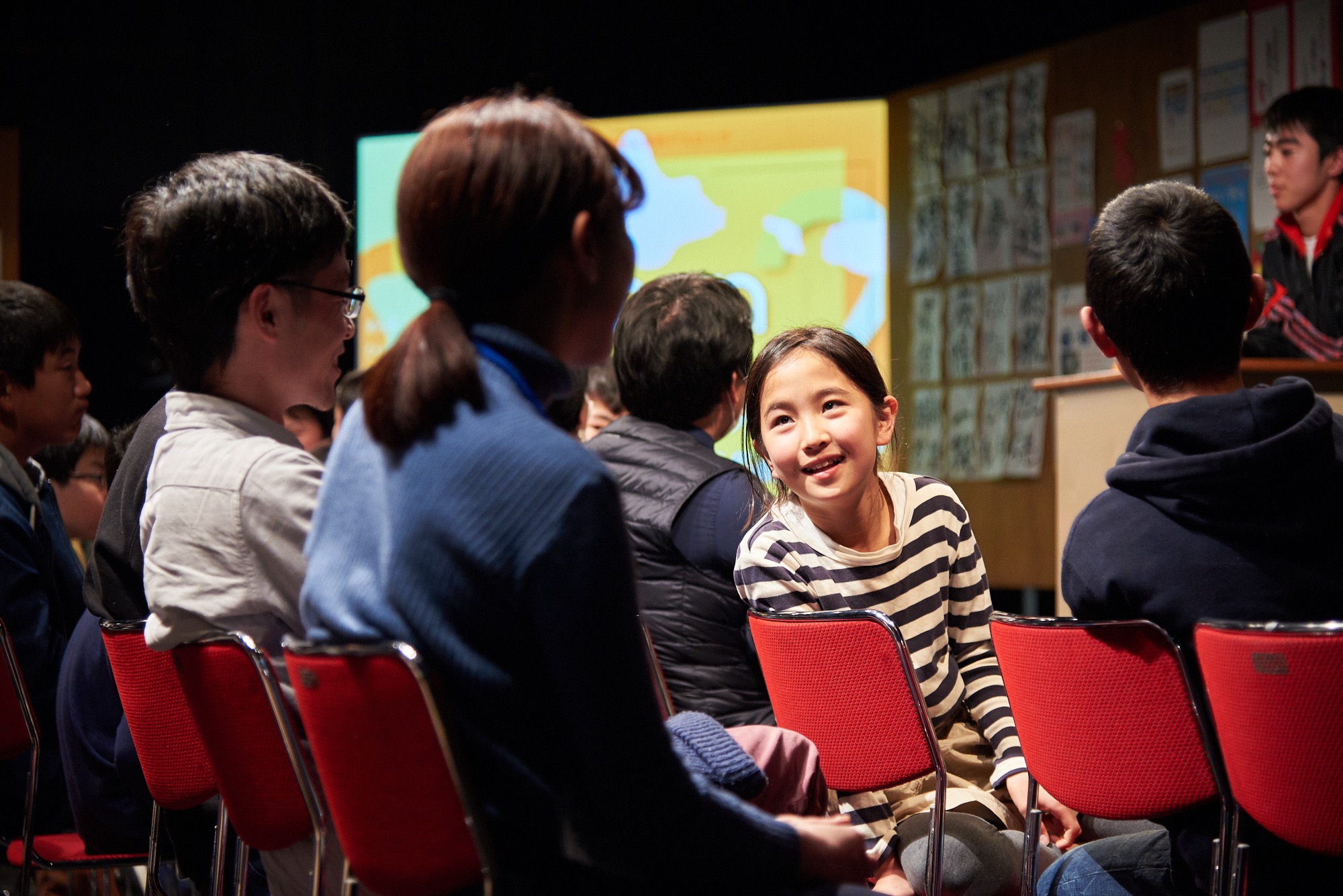
Suddenly, the child sitting next to me started talking to me, and I was surprised to see that the "actors" from Hajime Juku were sitting with me. Rather than being "audience-participating," it was a play where there was no boundary between the stage and the audience, and they were all one and the same.
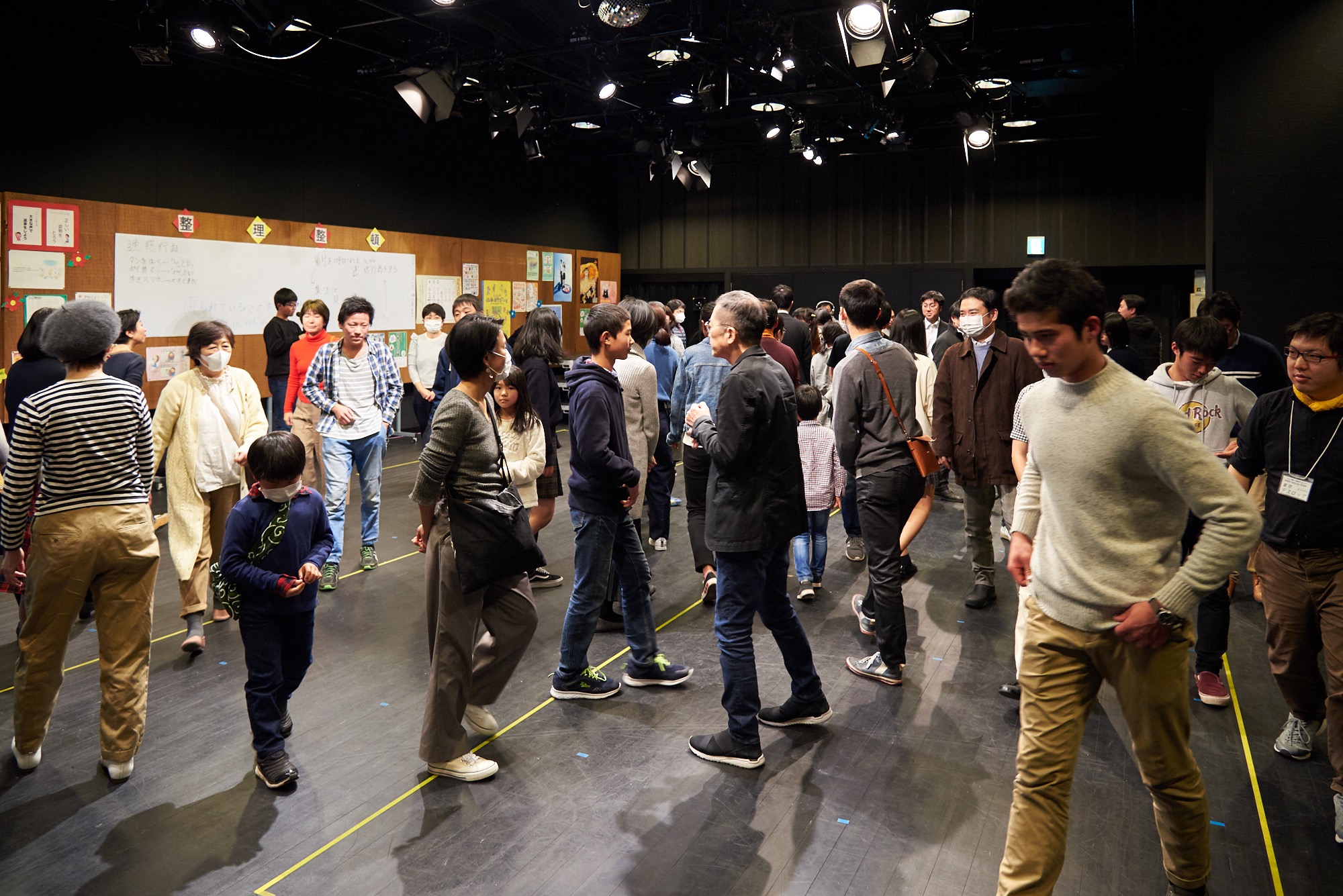
The second period is "Collective Silence."
In order to stop adults from engaging in unacceptable behavior, such as spitting, littering, or using their smartphones while walking, everyone silently surrounds the person who committed the act. This is the "Collective Silent Watch Game." So, we cleared the stage and the audience seats and tried it out together. It felt like we were being hit where it hurt: "You can't do anything if other people are watching you!"
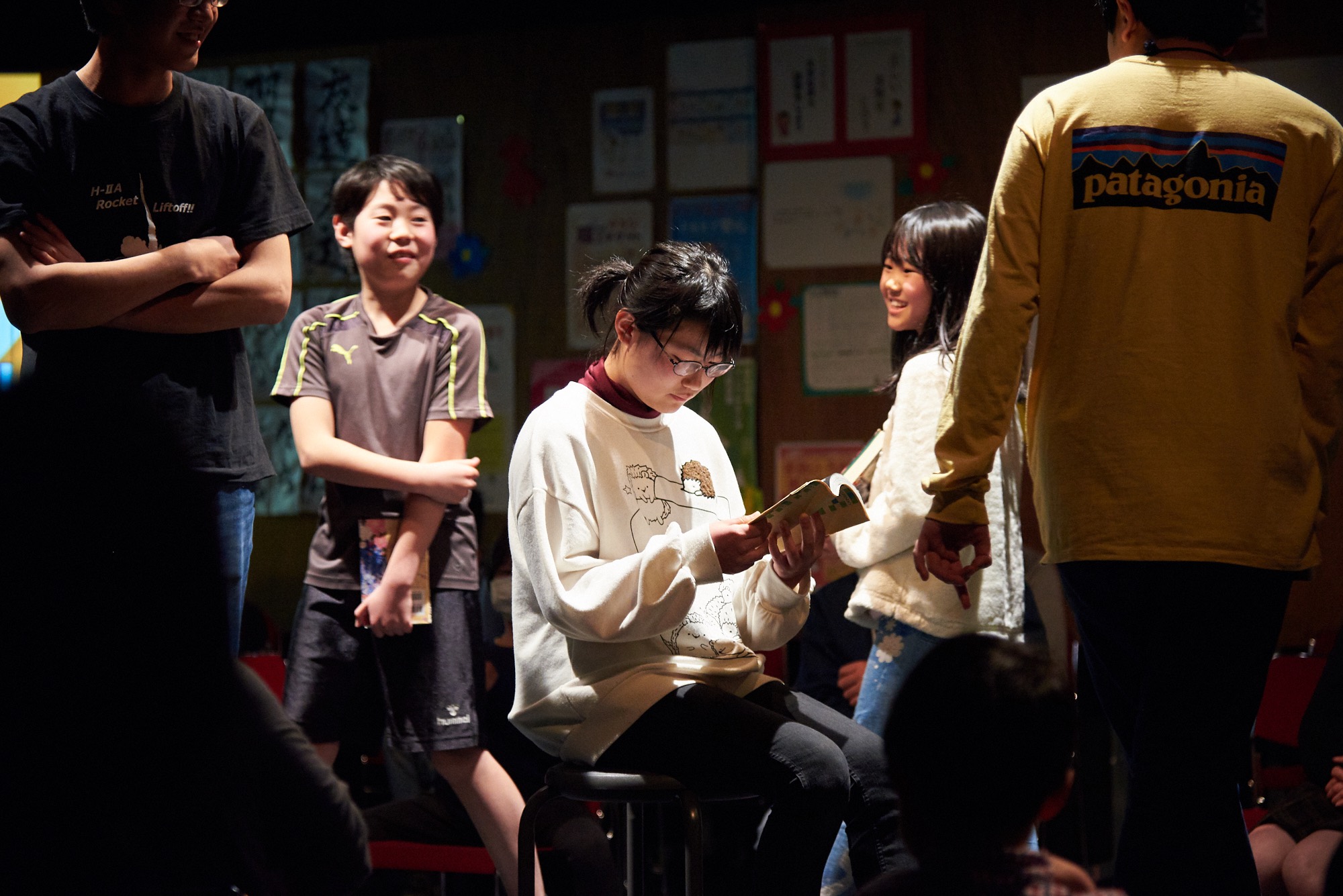
After a break, the third period was "Kageguchi." To match the theme, the audience seating was arranged in a surrounding style around the stage.
It's fun to say, but sad to hear. It makes you wonder what the children were thinking when they discussed this topic.
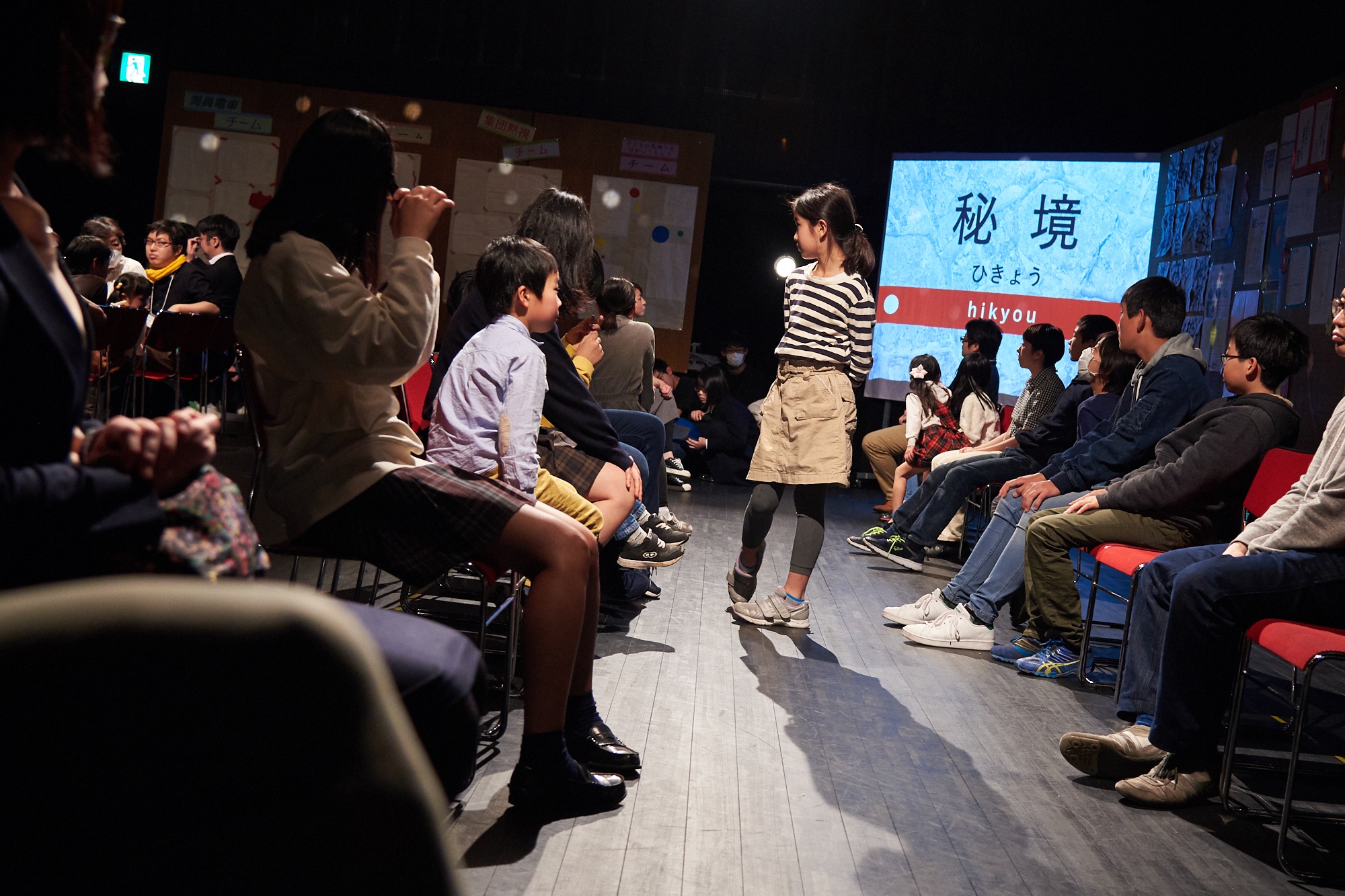
The fourth period is "Crowded Train."
During rush hour, the occupancy rate of trains in the Tokyo metropolitan area exceeds 150% on some lines. We are often told to "become an adult who understands other people's feelings," but the environment of a crowded train is one in which "if you understand other people's feelings, you won't be able to cope."
"Anti Human Education II" by Hajime Juku Boarding School and Tokyo Deathlock is scheduled to be performed at a later date. Any further information would be a spoiler, so if you find a theme that interests you, be sure to come see the performance!
We asked the students for their impressions after the presentation.
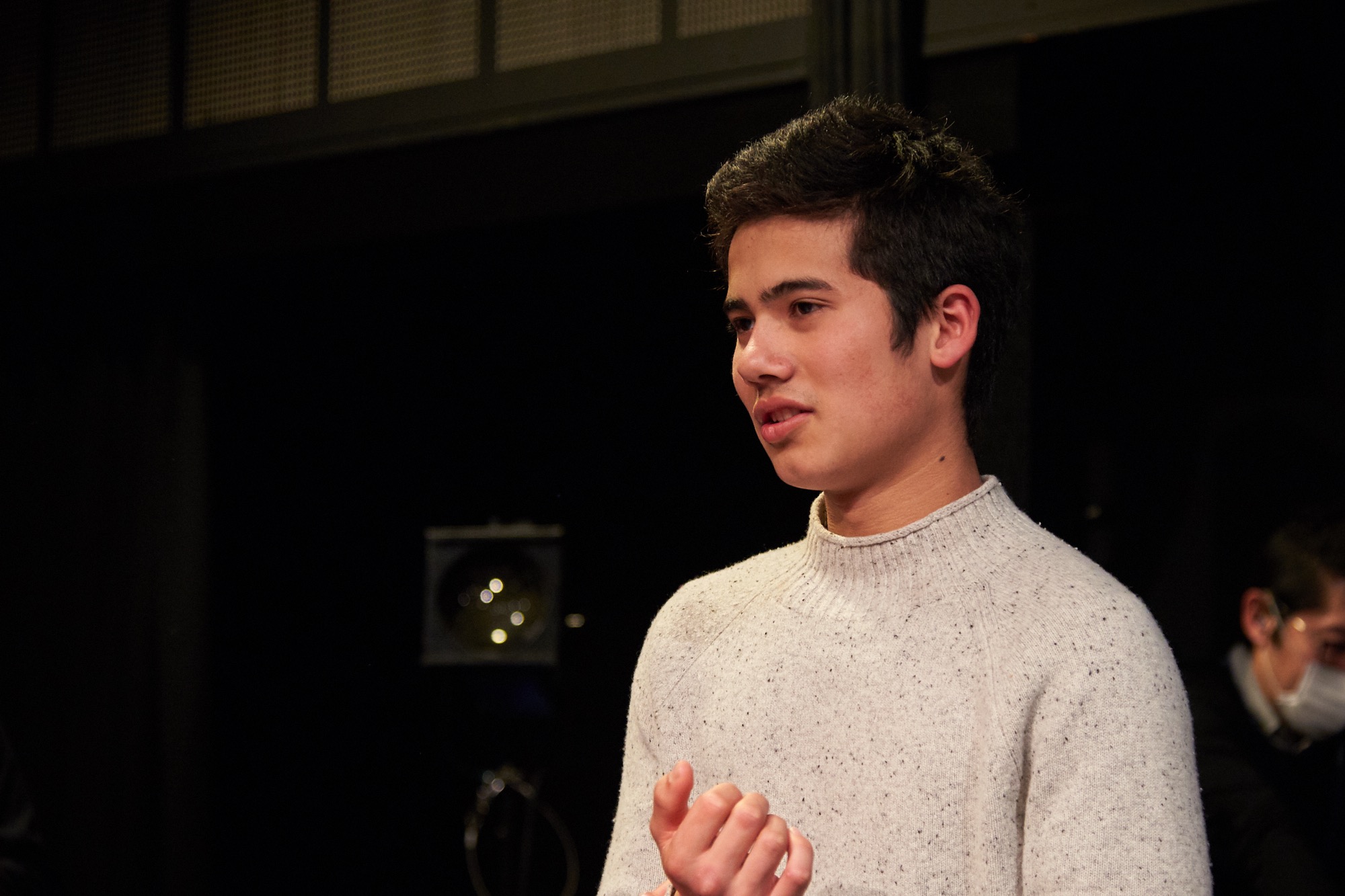
"Unlike when we present at workshops or at Hajime Juku, this time we're selling tickets and performing, so we're taking it to a different level of seriousness. The act of 'getting serious' was fun in itself. Apparently this performance will be held in a different format, but it means we'll have more time to practice, so I think that's a good thing in itself." (Vivi)
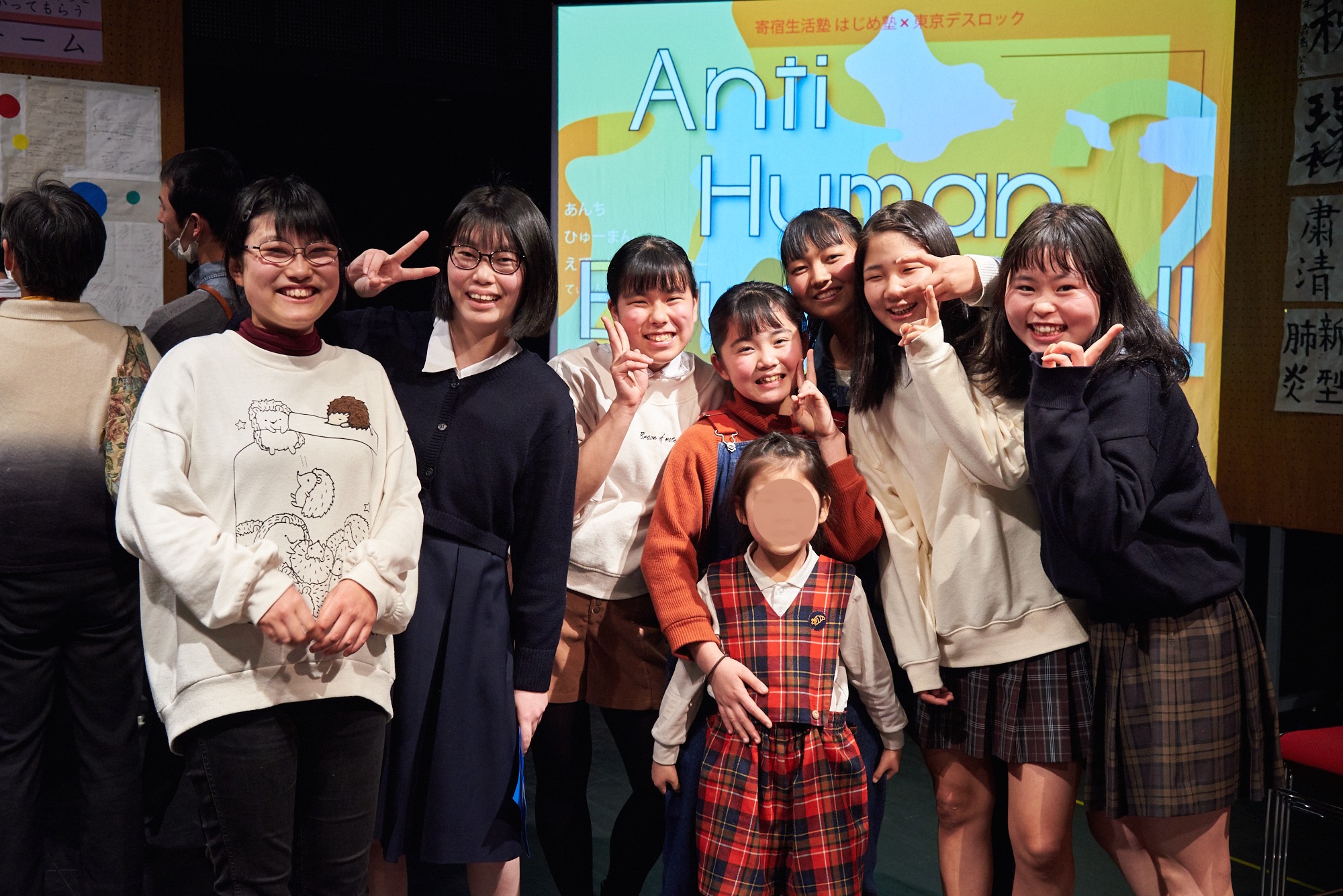
"At first, we just played games like tag and Daruma-san ga Koronda (laughs). We were talking about how if we turned something familiar into a play, it might actually be more interesting and engaging, and before we knew it, we had started. We had no idea what to expect, but it was fun!" (Moeno, Fu-chan, Kazu, and Akari)
Production Notes
How was this workshop?
Tada: The way they go through trial and error is like watching a play. They only rehearse about once a week, but it's fascinating to see how they come up with new ideas during those times. They receive feedback from other teams about their presentations and make some changes before the next one, and their adaptability is impressive.
Even if there are problems during the performance, overcoming them is part of theater, so I think it's important to consider what kind of experiences you have during the performance.
It's a participatory event for the audience, so I hope the audience will do their best too.
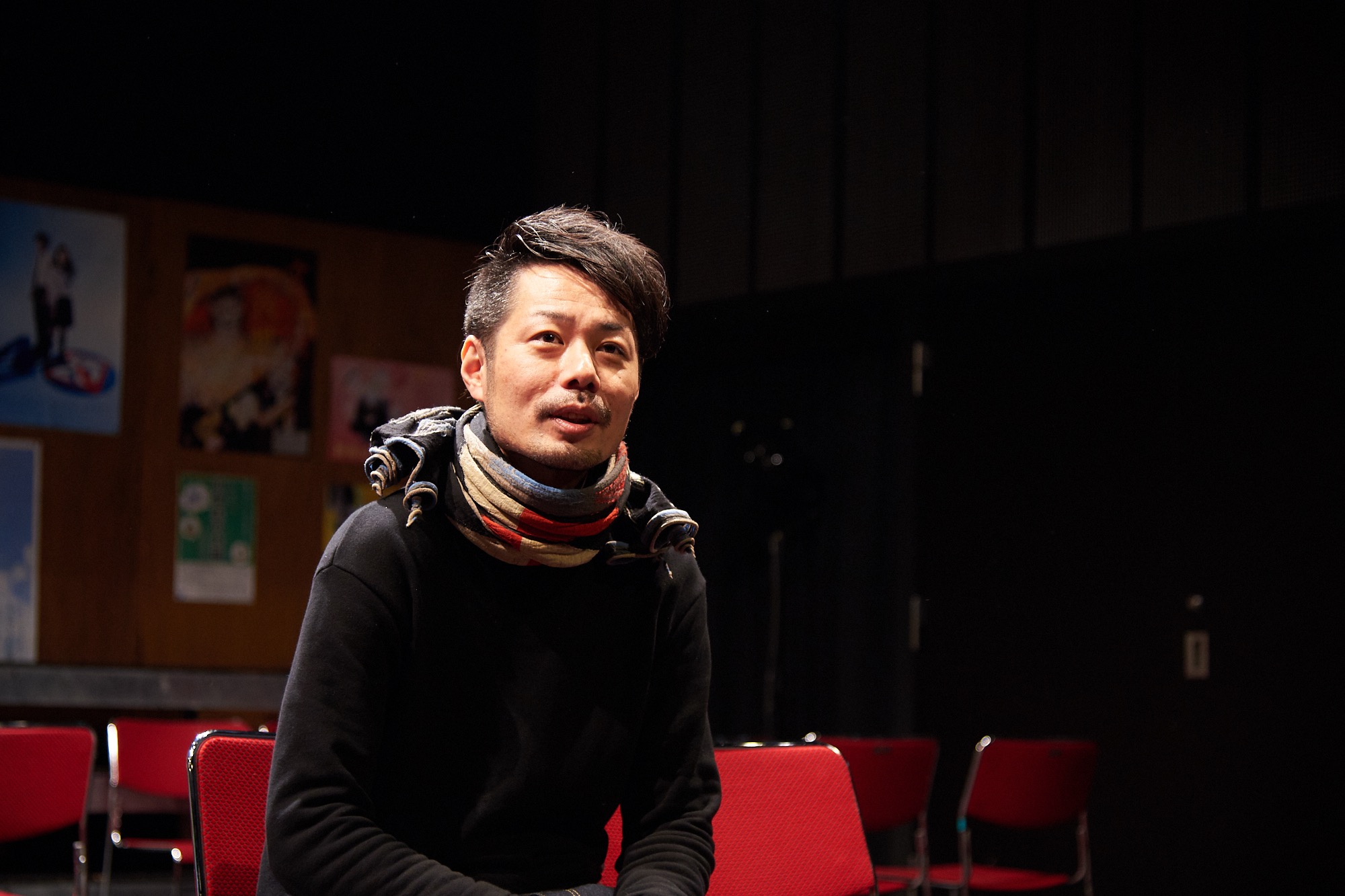
What is outreach activity?
I feel that Tada Schools tend to only teach the "correct" things and can be closed off. In that respect, art is about accepting things even if there are some mistakes, saying, "It's okay just the way it is." In other words, I think it's meaningful for artists to go and create a slightly different experience from usual, whether it's dance or music.
In our theater outreach activities, we don't teach theater, but rather we want to encourage people to "try expressing themselves." Even if you would normally get scolded for something, you won't get scolded in theater, so you can try expressing exactly how you feel. For example, if a person who normally doesn't listen to others acts in a play where they don't listen to others, they'll be incredibly good (laughs). Conversely, by trying to act out something you're not normally good at, you might be able to understand the feelings of those who do.
What did you think of the results presentation?
Tada: Today, the audience responded well to the questions the children asked, so I think they were able to perform better than they did during practice. Even though it was a presentation, they were able to have an experience close to the real thing, so I think it has broadened the scope of what they can imagine next time, such as "Maybe they can do more like this."
